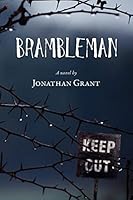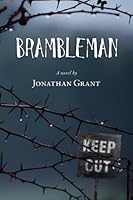Description
Down-and-out Atlanta writer Charlie Sherman has no idea what madness awaits him when a mysterious stranger convinces him to finish a dead man's book about a horrific crime that's gone unpunished for decades. What Charlie inherits is an unwieldy manuscript about the mob-driven expulsion of more than 1,000 blacks from Forsyth County, Georgia in 1912. During the course of his work, Charlie uncovers a terrible secret involving a Forsyth County land grab. Due to its proximity to Atlanta, the stolen farm is now worth $20 million -- and a sale is pending. When he finds the land's rightful owner, Charlie becomes convinced he's been chosen by a Higher Power to wreak justice and vengeance on those who profit from evil. And then things go horribly wrong. *** Back cover copy: “I was nine years old when they ran us out of Forsyth County in 1912. My father let me take one thing, a baseball he'd bought for me in the spring. I gripped it tight as we pulled away from our house. My mother was expecting my sister then, so she laid down in the back of the wagon. White men on horseback watched us with their rifles pointed in the air. Pop stared forward with the reins in his hands. ‘This is what they do, son,' he told me. I heard glass break and turned to see a torch fly in our front window. Pop grabbed my head and twisted it so hard my neck hurt. ‘Boy, don't look back,' he said. ‘Don't give them the pleasure of seeing your pain.' Most of the day passed before he talked again. He never got over it. That was his land, handed down by his father. The whites stole it, just like they stole it from the Indians. Took our crops, too. And they've had their way up there ever since. Today's not one bit different in Forsyth than the day I left.” *** HISTORICAL BACKGROUND: Forsyth County, famous as the birthplace of Hee-Haw's Junior Samples, has for most of the past century, existed as an intentionally all-white community bordering the black Mecca of Atlanta since 1912, following one of the 20th century's most violent racist outrages -- including lynching, nightriding, and arson. In 1987, the sleepy community gained notoriety when a small march led by civil rights firebrand Hosea Williams was broken up by rock- and bottle-throwing Klansmen, neo-Nazis, and their sympathizers. Bloody but unbowed, Williams returned the next week with 25,000 followers in one of largest civil rights marches in history. There was talk of reparations. Oprah came. Protests and counter-protests yielded a landmark Supreme Court case on free speech. But most importantly, white people flocked to Forsyth. It became the fastest- growing county in the nation, the richest one in Georgia, and one of the twenty wealthiest in the U.S.



 Amazon UK
Amazon UK